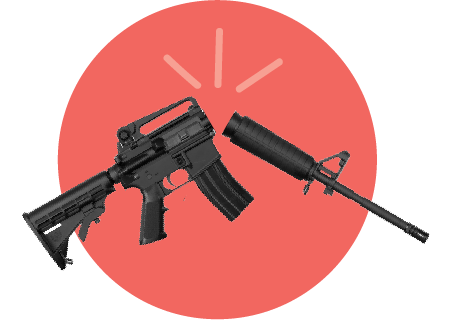To understand the lasting power of the heavily militarized world system, it is crucial to untangle how we – as individuals, as countries, as a global political economy – tend to privilege militaries and why. This privileging is because we have constructed a world system in which the state is the default actor, and the primary goal of the state is the aim to remain sovereign at any cost.
Language is a powerful force in the world. Whether through words that we voice, write or sign, through images we create and share, or by the way we hold and move our bodies, language is simultaneously the result of and foundation for the societies we inhabit. Though often thought of as something separate from our everyday lives, the arms trade and continued militarization around the world is closely tied to the language we use when we talk about ‘security’ and how to ensure it. Indeed, the spillover of the language of militarism impacts how we treat otherwise non-military events such as the ongoing global pandemic.
In 1987, Carol Cohn published “Sex and death in the rational world of defense intellectuals,” an article that became a foundational piece for beginning to understand how the language we use can limit the options we see when it comes to arms production and national security. Militarism and militarization are inherently gendered, both physically – who is assumed to protect whom from what – and emotionally – as in rational, ‘hard’ security is difficult to challenge. In this system, women, children and marginalized communities are disproportionately impacted by militarism and militarization. These groups face the added hurdle of gendered and racialized bodies and societal norms that limit what are considered ‘acceptable’ responses to the negative situations they often are in. As a result, challenging the weapons trade becomes that much harder.
If competing visions of the world we inhabit, or the one we would like to, rely on different words for expressing our desires and some words are valued more and thus privileged over others, how can we have a conversation at all?
To understand the lasting power of the heavily militarized world system, it is crucial to untangle how we – as individuals, as countries, as a global political economy – tend to privilege militaries and why. This privileging is because we have constructed a world system in which the state is the default actor, and the primary goal of the state is the aim to remain sovereign at any cost. People (especially the powers that be) use this view to justify high levels of military spending and arms production as the best way to ensure the state continues to exist. Tied to this view of states is the widespread assumption that militaries are ‘good, natural and necessary’ for society because national security is best provided by the military. This perspective has layers of gendered, racialized, heteronormative underlying assumptions regarding who counts and why.
The most recent data on military spending indicates that the world spent nearly US$2 trillion in 2020; and, while arms transfers leveled off over the most recent five-year period, the US, France and Germany made substantial increases in their respective arms exports during that period. Even so-called ‘international do-gooders’ Canada, Sweden and the Netherlands fall back on perceptions of militaries as ‘good, natural and necessary’ and the primacy of state sovereignty to justify selling weapons to authoritarian states. They claim that without these exports, their domestic arms producers might not be able to continue in business, which would jeopardize their abilities to safeguard their own countries and so on. Tied to this ‘good, natural and necessary’ assumption is the erroneous idea that arms production creates jobs and profits and the myth that these jobs are technologically innovative. The language we use is a crucial component to bolstering this privileging and these misunderstandings.
While to varying degrees depending on local and national contexts, this privileging is pervasive in nearly all societies the world over, even as many of us contest it. It constrains the words we use and how we conceptualize the possibilities for demilitarization. It limits the conversations we can have about how we live now and the world we can envision for the future.
Recommendations
- Change how society talks about security – When the everyday language around us leaves militarism unchallenged or explicitly supports it, it is harder to change the system and demilitarize our policies and economies. Reflecting on and incorporating everyday lived experiences would go a long way toward changing how we talk and what societies value.
- Contribute to collaborative efforts for de-militarization – as a way to amplify our voices, WILPF has a long history of supporting the efforts other like-minded groups. From a multitude of local organizations around the world to other international groups such as the Centre for Feminist Foreign Policy and the Corruption Tracker, working together makes us stronger.
– by Susan T. Jackson

